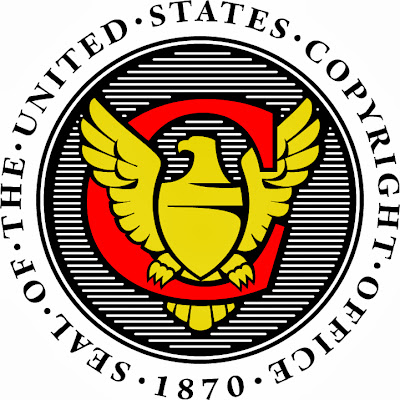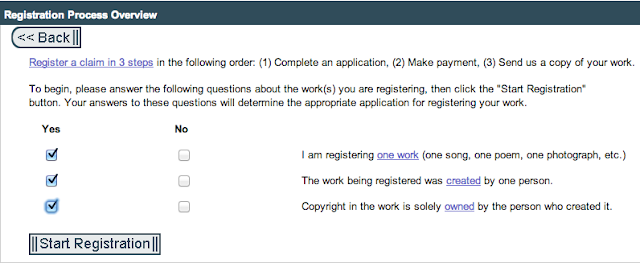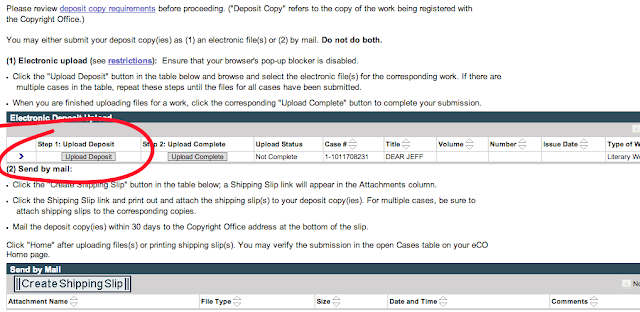
Why should you register your book with the Copyright Office?
First, I’m no lawyer, and you shouldn’t consider this to be anything more than one author’s simple understanding of the issue. If you have any questions, go get a real lawyer—someone who actually knows about this stuff—to give you more solid advice.
Now, my buddy is a copyright lawyer, and he strongly recommended that I register my books with the Copyright Office. He convinced me. Here’s a little of what he told me:
You’ve probably already heard that copyright is an inherent right. That means all you have to do is write something and it’s automatically copyrighted—you have the ownership rights to it without doing anything. They call this the “no formalities rule,” meaning you don’t have to file papers or do anything formal to obtain this right.
But with this no-formalities copyright, “your remedies are limited.” So you’re officially the owner and you have the right to stop someone else from copying it—as long as you can prove you’re the owner—that’s the catch. With a no-formalities copyright, the burden of proof rests on you. So if there’s a question of who owns it, it’s your job to prove you do. And that can mean a lot of legal difficulties and an expensive litigation—a hassle, to say the least. Also, if you win, all you get is that the other party has to stop copying your work. You won’t be compensated financially for any of the losses.
However, if you correctly register the work (which I’m about to teach you how to do), the burden of proof lies with the other party—that is, they have to prove you’re NOT the owner, and it’s much harder to prove a negative in court. Also, you can fine the other party for presumptions (i.e. money that was stolen or lost). These statutory damages can range anywhere from $250-$250,000.
Of course, we all hope that it never comes to this—that you won’t ever need to prove you’re the author of one of your works. And if being a bestseller isn’t in your future, you probably don’t need to bother with any of this, because it will only matter if it goes to court. But for just a $35 fee, you can have the peace of mind that you’ve protected yourself and your valuable work.
How do you register your book with the Copyright Office?
The first step is to go to the Electronic Copyright Office’s site: www.copyright.gov/eco/
Then register with the site so you have a username and password. And make sure to write down your username and password somewhere (I forgot mine, and it was a hassle to reset).
On the left, click “Register a New Claim.”
Now you have to start answering questions. I marked “Yes” on the first set. But a lot of this is going to depend on what your individual project is.

The interface is not well designed and will be frustrating to use (but that’s because the government doesn’t have incentives to serve users like a free-market business does). Sometimes the dropdown you need will show up at the bottom of the screen.

To do this, you’ll need your book’s title and ISBN, as well as your name, address, etc.
When you’ve completed all the steps, you’ll see this on the left:

Then click “Add to cart.” I just paid with my credit card (scroll down to the the second form to pay with credit). It charged me $35 to register a single work.
Next click “Upload Deposit.” This let me upload my cover PDF and my interior-text PDF. The server (or my connection) was pretty slow, so it took nearly an hour for about 90 MB in total.

Once your upload finishes and that popup closes, you need to click the “Upload Complete” button (just to the right of the “Upload Deposit” button). That seals the deal. (And there’s no pomp and circumstance to tell you you’ve finished. It just ends, abruptly.)
After you’ve finished, it generally takes about 4.5 months for the process to be completed on the government’s end. The status on the site will change to closed, and you’ll eventually receive your official certificate of registration.
You might also want to know that even though the registration won’t be completed for several months, the registration is effective from the date of your receipt. So if it goes to court, you’ll have your work protected from that moment forward. So you can feel comfortable publishing it or sending it out into the world.
Well, that’s it. If you have questions, feel free to post them. Maybe we can invite a lawyer to join us in resolving any issues. Also, if you have any insights or experience with this, please comment!
You guys are awesome.
— J

I’ll send you a FREE COPY of my HIGH ADVENTURE
ebook if you sign up for my personal newsletter:


No comments:
Post a Comment
What was your favorite part of this post?
— J